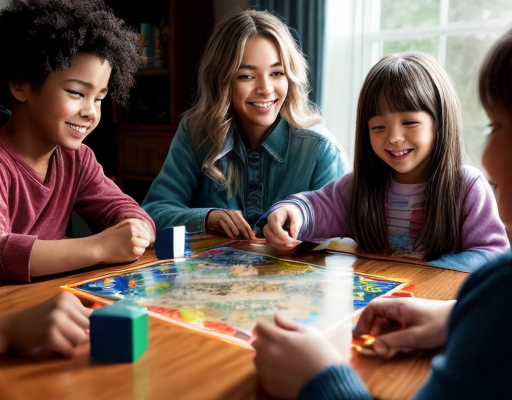
6 Family Games for Enhancing Social Studies Learning
6 Family Games for Enhancing Social Studies Learning
When it comes to education, incorporating interactive and engaging activities can significantly enhance the learning experience. Social studies, in particular, often involves complex concepts and historical events that can be challenging for children to grasp. However, by integrating games into the learning process, children can have fun while understanding and retaining essential social studies knowledge. In this article, we will explore six family games that are designed to enhance social studies learning.
1. Scavenger Hunt: Historical Edition
Scavenger hunts are a classic game that can be easily adapted to incorporate social studies topics. For a historical edition, create a list of historical landmarks, events, or figures that children need to find or learn about. Provide clues or riddles to guide them and encourage teamwork. This game allows children to actively explore and discover history while developing their research and problem-solving skills.
2. GeoGuessr
GeoGuessr is an online game that utilizes Google Maps to test players’ geographical knowledge. Players are placed in random locations around the world and must use visual clues to guess where they are. This game not only enhances geography skills but also exposes players to different cultures, landmarks, and landscapes. It’s a fun and interactive way for families to learn about the world together.
3. Timeline
Timeline is a card game that requires players to arrange historical events in chronological order. Each player is given a set of cards with different events and must correctly place them in relation to the other cards on the table. This game helps children develop a sense of time and historical context while learning about significant events in various periods. Timeline is available in different editions, such as American History, World History, and Science.
4. State Capitals Quiz
Learning the capitals of U.S. states can be a daunting task for children. However, turning it into a quiz game can make it more enjoyable and memorable. Create flashcards with state names on one side and their capitals on the other. Divide the family into teams and take turns asking each team a question. The team with the most correct answers wins. This game not only reinforces capital knowledge but also promotes teamwork and friendly competition.
5. Civics Charades
Charades is a classic party game that can be adapted to focus on civics and government. Create cards with terms related to civics, such as “democracy,” “judicial branch,” or “constitutional rights.” Each player takes turns acting out the term on their card without speaking, while the rest of the family tries to guess the term. This game helps children become familiar with essential civics concepts in an interactive and entertaining way.
6. Cultural Cuisine Cook-Off
Cultural cuisine cook-offs are a fantastic way to explore different countries and their food traditions. Choose a specific country or region to focus on and have each family member prepare a dish from that culture. Encourage them to research the ingredients, cooking techniques, and historical importance of the dish. As you enjoy the meals together, discuss the cultural significance and how it relates to the social studies topics covered. This game promotes cultural appreciation and understanding while incorporating hands-on learning.
Conclusion
Integrating games into social studies learning not only makes education more enjoyable but also enhances comprehension and retention of knowledge. The six family games mentioned in this article provide fun and interactive ways for children to explore geography, history, civics, and culture. By incorporating these games into your family’s routine, you can foster a love for social studies and inspire lifelong learning.

